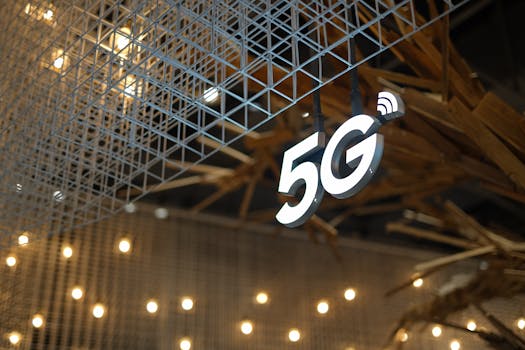
Introduction

The dawn of 5G technology has already begun to reshape our digital landscape, but what can we expect by 2025? This article delves into the revolutionary changes brought about by 5G and its evolution, exploring its implications for businesses, consumers, and the global economy.
Table of Contents

What is 5G?

5G, the fifth generation of mobile networks, is designed to deliver faster speeds, lower latency, and greater connectivity than its predecessors. With download speeds potentially exceeding 10 Gbps, 5G enables a more seamless experience for users and devices alike. This technology is not just about faster internet; it represents a significant leap in how data is transmitted and processed, fostering a more interconnected world.
Benefits of 5G Technology

The benefits of 5G technology extend beyond mere speed. Key advantages include:
- Enhanced Speed: Users can download movies, games, and large files in seconds.
- Low Latency: Real-time communication becomes possible, crucial for applications like autonomous driving and remote surgeries.
- Greater Connectivity: 5G can connect millions of devices in a single area, paving the way for the Internet of Things (IoT).
- Improved Reliability: Businesses can depend on consistent and high-quality connections for critical applications.
Impact on Various Industries

The implementation of 5G technology is expected to have a profound impact on various sectors:
Healthcare
In healthcare, 5G enables telemedicine, remote monitoring, and even surgical procedures performed by robotic systems controlled in real-time by doctors miles away.
Transportation
Smart cities will benefit from improved traffic management, while autonomous vehicles will rely on 5G for communication with infrastructure and other vehicles, enhancing safety and efficiency.
Entertainment
For the entertainment industry, 5G will facilitate the streaming of high-definition content and immersive experiences such as augmented reality (AR) and virtual reality (VR) applications.
Manufacturing
In manufacturing, 5G will support smart factories, with connected machinery and robotics enhancing productivity and reducing downtime.
The Future Beyond 5G

As we look towards 2025 and beyond, the evolution from 5G to 6G is already in discussion. The next generation is expected to offer even higher speeds and lower latencies, potentially integrating advanced technologies like artificial intelligence (AI) and machine learning into the network infrastructure. This will create smarter, more adaptive networks capable of meeting the ever-growing demand for data and connectivity.
Additionally, the convergence of 5G with other technologies—such as edge computing and blockchain—will unlock new use cases and business models, further driving innovation across sectors.
In summary, the connectivity revolution initiated by 5G will pave the way for transformative changes in how we live and work. As we approach 2025, the possibilities are endless, and the implications for society and the economy will be profound.
See more:
GSMA 5G Overview
Qualcomm 5G Technology
TechTarget 5G Definition







